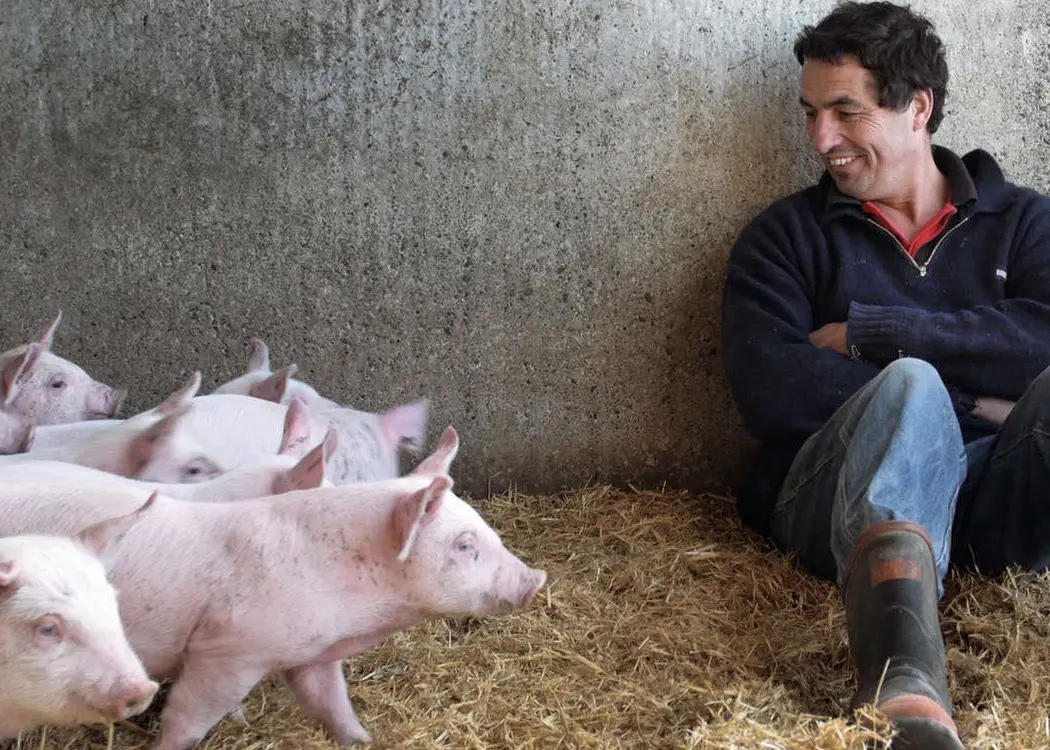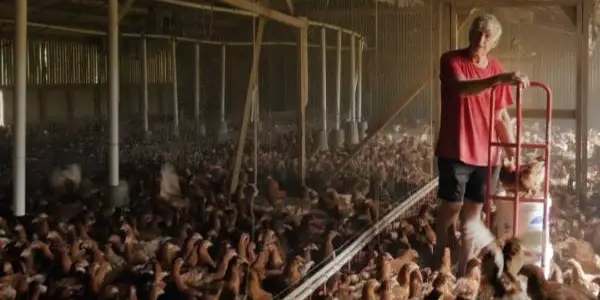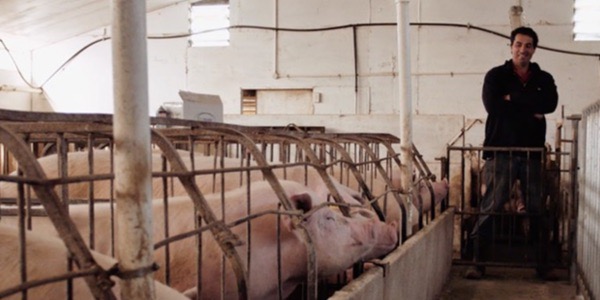MEAT: Journey To Your Plate

Produced and co-directed the short documentary film, ART of COURAGE,…
There is typically a lot of reaction at the table about the meat, presented on the plate. Is it appropriate? Is it tasty? Is it expensive?
The film Meat focuses on an alternative perspective, by considering the small animal farmers who produce it for your meal and having you think about how the meat comes to your plate. Most people probably don’t want to think about the origin of their meat but this film takes a palatable approach in showing you. There isn’t a lot of squealing, slaughtering and butchering in the film to sicken you but it may be heart-breaking to see adorable animals that children like to embrace for consumption.
A Look at Animal Farming
The film explores the common perceptions of consumers (or non-consumers) from the animal farmers’ perspective of the how meat is raised and the cruelty involved. At first, it’s unclear what to make of the close-ups of the farmers telling their stories. They are intertwined with nurturing scenes of interaction with the animals that are poignant in an unreconcilable way.

Even though the farmers are raising the animals to become food on the table, one can see that there is a relationship between the farmers and their animals. The farmers care for each animal from day one until her/his end of life. In response, the animals appear to trust the farmers. The difference is that the farmers feel that it is inevitable that all beings have to come to an end in any life-cycle, including animals. Therefore, it is of natural order for the animals to become a food source.
Farm Range or Free Range (by Hunting)?
Another common perception that the farmers address is whether these animals possess human qualities such as projecting thoughts or feelings.The chicken farmer opinionates that people tend to anthropomorphize or give human traits to animals. Is it us or the animals ? Great food for thought or thought on the food.
The film also incorporates a hunter’s approach to animals for food; the truly free range approach by tracking them in the woods. Josh James, from The Kiwi Bushman and Discovery Dual Channel. discusses the holistic benefits of hunting for your food. I am not convinced that hunting animals is a lost art that connects us back to nature. History points to ancient civilizations in different parts of the world that were able to thrive on vegetarianism.

The scenes of Josh James hunting in the mountains are certainly more stunning to look at than the daily grind at the animal farms. Unfortunately, the hunting approach is less relatable to the overall discussion. Today’s population wouldn’t go out and hunt for meat, even if hunting fresh animals is better than eating caged meat.
Conclusion: Meat – Does It Matter?
The film wraps up with one interesting thought by the pig farmer, who conveys that we will always want to eat animals. There is a great demand for meat. Is it because we have been taught or conditioned to desire it and therefore, we will inevitably pass this need down to the next generation? Meat raises awareness of why we should consider the eco-chain of how food comes to us and hopefully, this understanding will positively shape our consumption behaviors.
Do you care about the meat you eat? Tell us in the comments below!
Meat was released in New Zealand on May 4, 2017. For all international release dates, see here.
Does content like this matter to you?
Become a Member and support film journalism. Unlock access to all of Film Inquiry`s great articles. Join a community of like-minded readers who are passionate about cinema - get access to our private members Network, give back to independent filmmakers, and more.
Produced and co-directed the short documentary film, ART of COURAGE, which showcased at various film festivals. Film Inquiry's review of my film is how I discovered it. I thought, "They are having a lot of fun so I better join in!" I am always tuning in for the subtle, underlying details that sums up to reality, like pointillism in Seurat's paintings.













